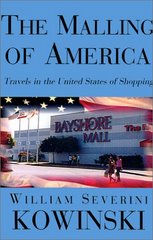The strawberries in the new patch out front are waning, but the blackberries in the back are abundant, with a taste that seems influenced by nearby plants. The tomato crop was smaller this year, but there are still some ripening on the dying vines. Meanwhile, the pear tree is yielding good fruit for the first time, and an unusual taste of tartness with a sweet aftertaste. There are still lots of lettuces.
This is the immense privilege of picking parts of your meals, moments before you eat them. Strawberries and tomatoes warm from the sun—how much do I need to explain? Tomatoes in the US are bred to withstand higher impacts than most automobile bumpers because they normally travel so far by truck, and these days, by boat or plane.
What we (and by "we" I mean Margaret) don’t grow, others here and nearby do, just as organically. We’re kept in fresh garlic by friends in the mountains; soon we’ll pick apples there. There are two farmer’s markets a week within walking distance. Corn, peppers, all kinds of squashes and so on are the cheapest they’ll be, from now until the last farmer’s market just before Thanksgiving.
Known for redwoods and remoteness, Humboldt County has a lot of agriculture besides that cash crop you all know about (which flourishes mostly well south of Humboldt Bay.) Even here in Arcata and other spots along the cool coast, the growing season is continuous, and something is always budding, flowering or bearing its fruits. But this is the big harvest time, after which the hummingbirds will stop ignoring the feeder, and drain it several times in a couple of weeks before disappearing till spring.
I’m guessing that the longest distance any of the fruits or vegetables I normally eat must travel are the oranges, and they aren’t that far away. They were my first fresh food discovery when I arrived 9 years ago this fall. The Valencias are amazing, and pretty cheap right now. I have one every day to top off breakfast. It’s funny that California was once most famed in the mid-Atlantic states for its oranges, and although most of those fabled groves are gone, these fresh oranges are still a continual revelation. They live up to their old billing, so much better than the California oranges we got in Pennsylvania.
The pears are great, too. I discovered the Bosch variety, first from our neighbor’s backyard orchard several years ago. Oranges and pears never let you down.
A lot of people are on various low carb diets now, though I see that the fashion for them is waning. They’ve worked out for some people. But they don’t interest me. I tell people that it’s a great responsibility I’ve taken on, to keep the world in balance by consuming the carbs they are failing to honor. But it’s as close to roots as I can get here: pasta and biscotti.
I was raised among Italians, and every year at about this time the back porch would yield baskets of tomatoes and peppers from their prodigious gardens. These days I make pasta with a simple olive oil and spices sauce, grated Romano cheese and literally top it with tomatoes I have just picked and sliced.
These diets often also ban fruits, which I’m afraid makes them, according to my beliefs, sacrilegious. Life without oranges and pears and apple jelly is like life without hot water.
Possible, but why bother?
Anyway, I prefer the fashion of several years ago, when something called the Mediterranean diet was all the rage. That and the Slow Food Movement (centered of course in Italy) pretty much describe the food I recall from my grandmother’s table. Hey, we’re omnivores here. It’s healthy enough.
My forbearers in Italy and eastern Europe were peasants, and it is harvest time when I feel connected to their joys rather than their sorrows and limitations. When I was young I grew impatient with the endless talk of tomatoes and peppers and gardens and where the bread was fresher and the olive oil was on sale. I was bedazzled by the world of books and the story imagination, and the TV seduced me into seeing myself on a bigger stage in the big wide world.
Since then I’ve found that in a somewhat bigger world, people talk about Ipods and cell phones, gasoline prices and, of course, each other. I’d still rather pick a tomato or eat a pear than talk about them. In fact I’d rather talk to the tomato plants as I water them than listen to the TV snort and babble. I don’t kid myself that I am much “closer to the earth,” or even my “roots.” But I’m closer to something.


